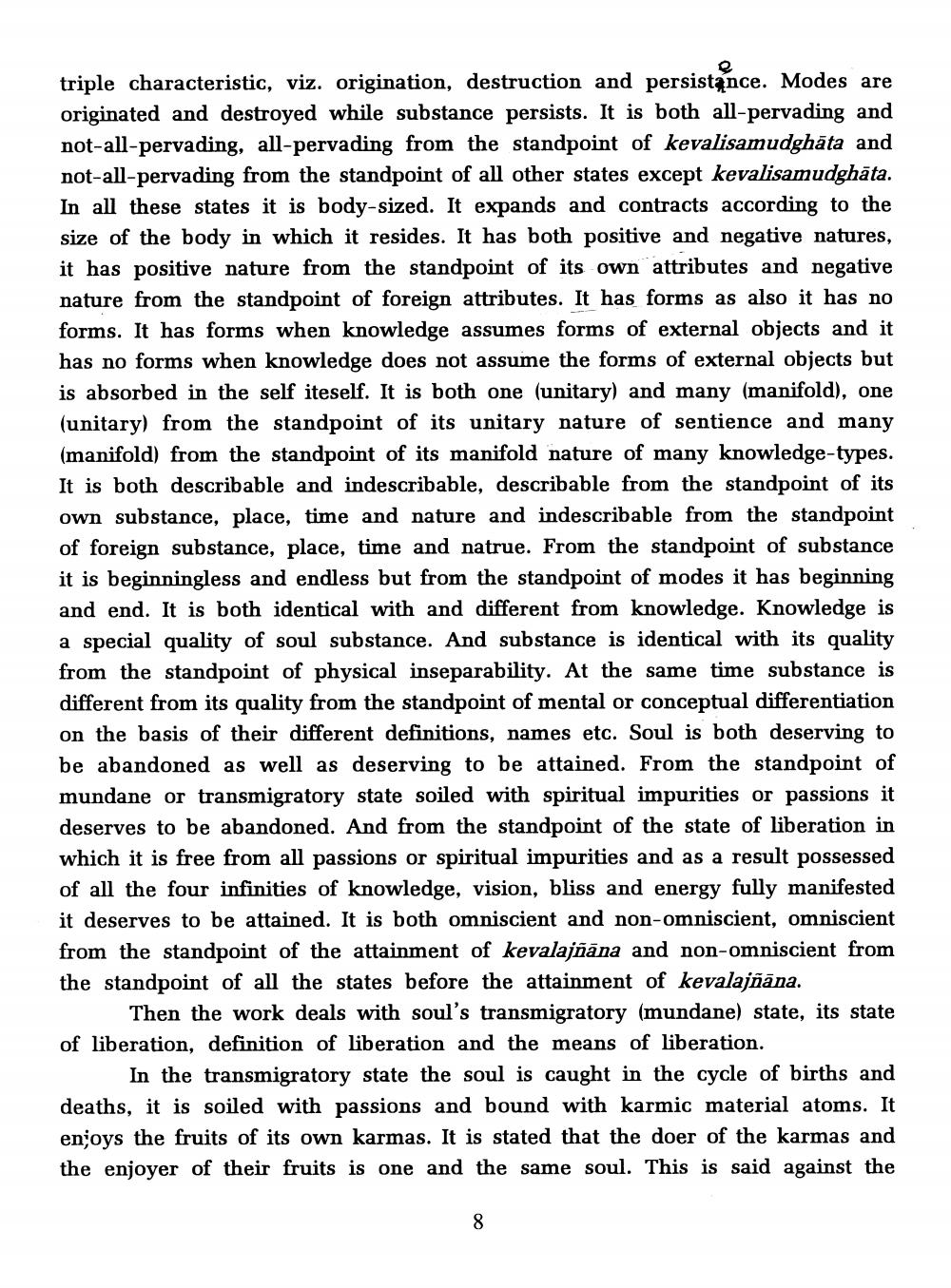________________
triple characteristic, viz. origination, destruction and persistance. Modes are originated and destroyed while substance persists. It is both all-pervading and not-all-pervading, all-pervading from the standpoint of kevalisamudghāta and not-all-pervading from the standpoint of all other states except kevalisamudghāta. In all these states it is body-sized. It expands and contracts according to the size of the body in which it resides. It has both positive and negative natures, it has positive nature from the standpoint of its own attributes and negative nature from the standpoint of foreign attributes. It has forms as also it has no forms. It has forms when knowledge assumes forms of external objects and it has no forms when knowledge does not assume the forms of external objects but is absorbed in the self iteself. It is both one (unitary) and many (manifold), one (unitary) from the standpoint of its unitary nature of sentience and many (manifold) from the standpoint of its manifold nature of many knowledge-types. It is both describable and indescribable, describable from the standpoint of its own substance, place, time and nature and indescribable from the standpoint of foreign substance, place, time and natrue. From the standpoint of substance it is beginningless and endless but from the standpoint of modes it has beginning and end. It is both identical with and different from knowledge. Knowledge is a special quality of soul substance. And substance is identical with its quality from the standpoint of physical inseparability. At the same time substance is different from its quality from the standpoint of mental or conceptual differentiation on the basis of their different definitions, names etc. Soul is both deserving to be abandoned as well as deserving to be attained. From the standpoint of mundane or transmigratory state soiled with spiritual impurities or passions it deserves to be abandoned. And from the standpoint of the state of liberation in which it is free from all passions or spiritual impurities and as a result possessed of all the four infinities of knowledge, vision, bliss and energy fully manifested it deserves to be attained. It is both omniscient and non-omniscient, omniscient from the standpoint of the attainment of kevalajñāna and non-omniscient from the standpoint of all the states before the attainment of kevalajñāna.
Then the work deals with soul's transmigratory (mundane) state, its state of liberation, definition of liberation and the means of liberation.
In the transmigratory state the soul is caught in the cycle of births and deaths, it is soiled with passions and bound with karmic material atoms. It enjoys the fruits of its own karmas. It is stated that the doer of the karmas and the enjoyer of their fruits is one and the same soul. This is said against the




